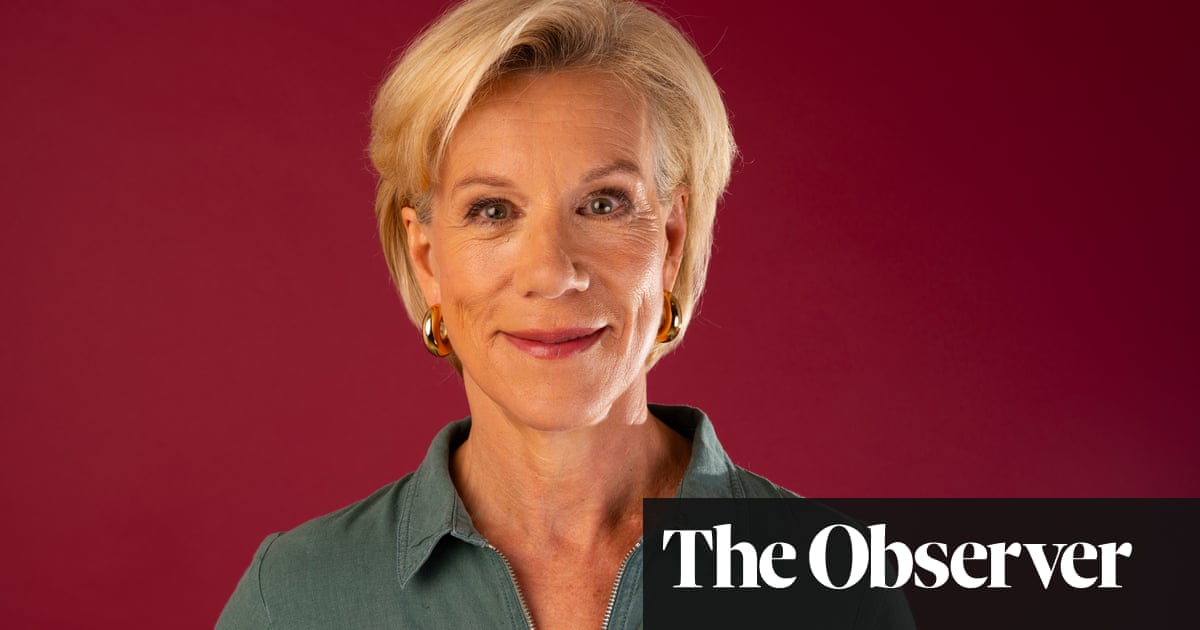Juliet Stevenson: A Life in Acting and Activism Born and trained at Rada, Juliet Stevenson, 67, made her TV acting debut in Granada drama The Mallens
Juliet Stevenson: A Life in Acting and Activism
Born and trained at Rada, Juliet Stevenson, 67, made her TV acting debut in Granada drama The Mallens in 1979. She has won numerous awards and nominations, including an Evening Standard best actress award for Truly, Madly, Deeply opposite Alan Rickman. She is also a hugely popular audiobook narrator. Her new film, Reawakening, co-stars Jared Harris and Erin Doherty.
Acting and Activism
Reawakening
Reawakening is about a working-class couple, Mary and John, whose 14-year-old daughter went missing a decade ago. As a parent who has experienced loss, how did you prepare emotionally for that?
I often feel like a ruthless recycling machine, recycling things I have felt in my life and what I’ve observed others feeling. Nothing is sacred, because my memory bank is my fuel. But I also love that this film is a thriller, where something very profound – the loss of a child – is explored, before it twists and becomes something much more, about desperate yearnings, faith and belief.
The Business and Politics
And then their daughter reappears. A film about grief made you famous of course…
It did. And I still get lots of feedback from Truly, Madly, Deeply, which is astonishing – so many people still, generation after generation.
Why do you think that is?
Because loss and grief are usually portrayed on film and stage as sort of elegant. You get one or two beautiful tears rolling down the perfect cheek. Nothing’s smudged. There’s no dirt. But when you’re in grief you feel like shit. You hate the world. You’re jealous of other people’s happiness. It can be a very ugly state. I remember Anthony Minghella cleverly saying: Look, it’s very whimsical to have ghosts coming back from the dead, so you have to root that in something very real and raw. So I made Nina’s grief unbearable!
The Long Way to Equality
Reawakening sees you working with writer-director Virginia Gilbert, and you recently spoke enthusiastically about working with a female director of photography on ITV drama The Long Call. Is the business getting easier for women?
It’s changing but slowly, and not nearly enough. I’ve done three big filming projects this year for the BBC and CBS, and all the directors, writers and technicians were men, pretty much, however nice they were to work with. There needs to be more women and more film-makers of colour in this country because there are so many stories that need to be told, and different, subtler ways of telling them, but they’re not supported.
What’s the biggest issue?
Chronic underfunding. We create so much talent in this country – writers, actors, designers, technicians – and have centuries of storytelling, art and design in our culture, but as soon as anybody makes a bit of a reputation, off they go to the States and we lose it. It’s just heartbreaking, like a brain drain. A talent drain.
Early Life and Career
You mentioned your experience with grief and loss early in your career. Can you talk more about that?
Yes, of course. I was in a play, War and Peace, when I was approached by a young woman who had had a stillbirth. She was struggling and could not talk about her loss and I listened to her for almost an hour. She thanked me and after that, I knew that I did not want to act anymore, especially in a play like that if I could not do something that genuinely helped people.

COMMENTS